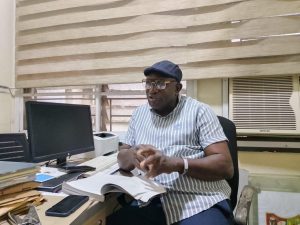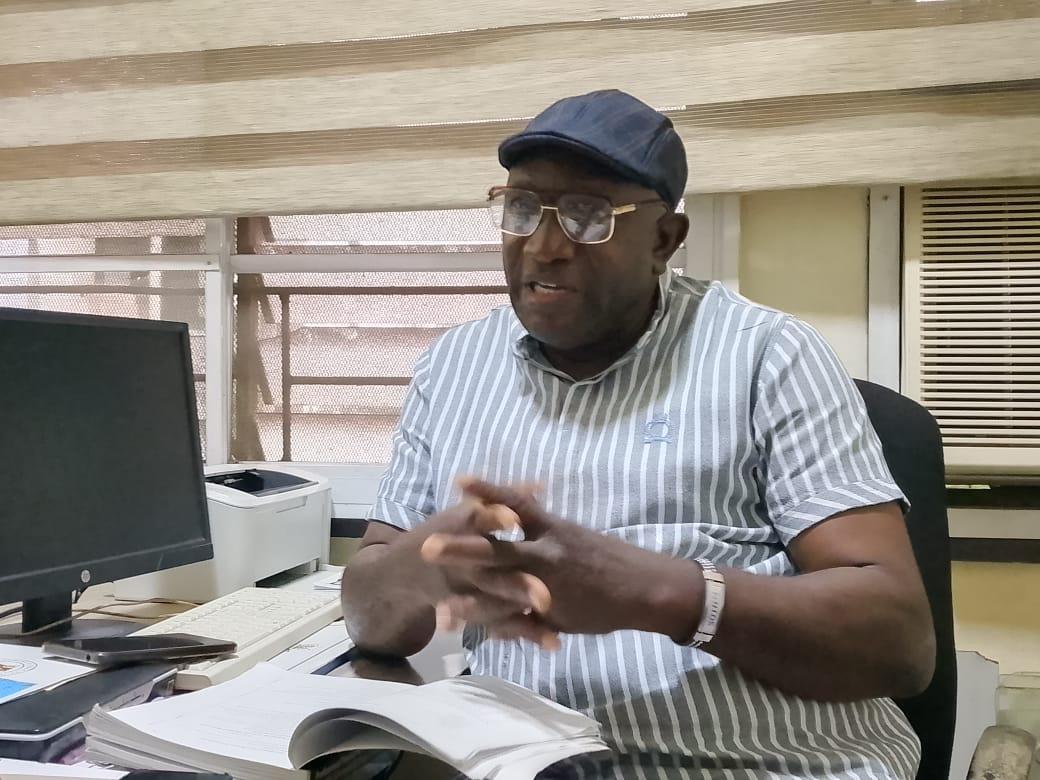(INTERVIEW): Quackery Promotes Building Collapse — QS Oluwade


The Chairman, Nigeria Institutes Of Quantity Surveyor, Oyo state Chapter, QS Kayode Kolawole Oluwade, in this interview with KAZEEM AWOJOODU, explains reasons behind building collapse, how government at all levels can curb quackery, ensure proper costing before approvals of structural projects, urge for parents’ children enrollment for Quantity Surveying as career path, advocates for employment of Registered Quantity Surveyors in all the Local Government Areas in the state. Excerpts:
How many years of experience do you have as a Quantity Surveyor, and how long have you served as Chairman of the NIQS Oyo State chapter?
I have about 31 years of experience in the profession. My tenure as Chairman began in 2024 and will run until August 2026. This year marks one year that I have been in the saddle.
Many people confuse Quantity Surveyors with Land Surveyors. Can you explain the different kinds of surveyors and the unique role of Quantity Surveyors?

Yes, this is a common misconception. People often confuse Quantity Surveyors with Land Surveyors because they don’t pay attention to the prefix. In reality, there are three main categories of surveyors.
First, we have Land Surveyors, they determine the shape, size, and composition of land masses, define boundaries, and establish levels for projects. Their work now extends beyond traditional land mapping to marine and aerial surveys. Second, there are Estate Surveyors and Valuers, they help clients acquire and manage land or buildings, source tenants or buyers, and conduct valuations for sales or leasing.
Finally, Quantity Surveyors are distinct in that we focus on cost management for construction projects, be it buildings, airports, seaports, railways, or refineries. As the Bible says in Luke 14:28: “Who among you, wanting to build a tower, does not first sit down and count the cost?” That is what we do to estimate and control costs to ensure a project is completed within budget and a timeline.
We not only calculate costs before construction begins but also monitor and manage expenses during execution. We are very much involved in the procurement processes to select reputable contractors through competitive bidding.


Here in Oyo State, for example, our members assist the government in assessing project proposals to ensure value for money before approval. There is no major construction, government or private that can be done without involving a Quantity Surveyor.
Why do you think public awareness about the role of Quantity Surveyors is still low?
This is largely due to the fact that the ethics of the profession frowns at public advertising like displaying of large signboards etc that is why we are engaging in advocacy. Government projects cannot happen without us, because they must know the cost before budgeting. Large private projects also require our expertise.

However, when you look at student admissions into Quantity Surveying, you’ll find many never originally chose it; they often aimed for other courses. Even though I came into the profession by accident, my uncle suggested it to me after I had applied for other courses.
We want to encourage parents and guardians to guide their wards toward the profession, which offers strong career prospects. The basic requirement is to be a science student with Mathematics and English, along with Physics, Chemistry, Geography and Economics.
What career opportunities are available for Quantity Surveyors?
Quantity Surveyors enjoy a broad range of career opportunities. We can work in academia as lecturers in universities and Polytechnics, or within the Works and Physical Planning Departments of these institutions, where capital projects require our input. In the banking sector, Quantity Surveyors are needed in estate or works departments when banks expand their branch networks.


In government ministries, such as Works and Infrastructure, we are employed to manage construction projects. In fact, about 16–18 Quantity Surveyors were recently employed into the state civil service.
We are also essential in contracting firms; any serious contractor must have a Quantity Surveyor on the team. Many practitioners also operate their own consultancies, providing services to government and private clients for fees set by official scales.
Quantity Surveyors are also invaluable in Real estate development, mortgage companies, insurance companies, building components and materials manufacturers such as paints, bricks and aluminum companies, oil and gas companies.
How is the profession regulated in Nigeria?
There are two main bodies: the Nigerian Institute of Quantity Surveyors (NIQS), which is the professional association, and the Quantity Surveyors Registration Board of Nigeria (QSRBN), which regulates the profession.
After graduating, you pass the NIQS examination to become a Chartered Quantity Surveyor. However, to practise, you must register with QSRBN, obtain your seal, and renew your practising licence annually by attending seminars and capacity-building programmes.
Verification of registered professionals is easy,if you give someone your registration number, they can confirm it on the QSRBN website. This helps in identifying and eliminating quacks.
Building collapse has been a recurring issue in Nigeria. From your perspective, what are the causes?
Construction is a team process involving several professionals Architects, Structural Engineers, Mechanical and Electrical engineers, Builders, and Quantity surveyors. When a building collapses, the cause often lies in structural failure, not aesthetics.
An Architect designs the building, a Structural Engineer designs for its structural stability, and the Quantity surveyor prepares cost estimates for structural elements, materials, and labour. The Builder then executes the project according to the specifications.
Collapses can result from unqualified individuals, quacks taking on specialised roles, negligence by designers, inadequate supervision, or approving authorities failing in their responsibilities. Cutting costs by using substandard materials also poses serious risks.
Intra-professional malpractice, such as structural engineering design not done by a registered structural Engineer is another problem. For a building to stand, every professional involved must be qualified, registered, and diligent in carrying out their duties.
What further support would you like to see from the government to strengthen the role of Quantity Surveyors in public projects?
I really appreciate our amiable Executive Governor of Oyo State, Engr Oluseyi Makinde FNSE, for employing Quantity Surveyors into the Ministry of Public Works, we must emphasize that this singular step will undoubtedly bring about greater success in the projects being executed in the state, this will also ensure that government’s plans come to fruition, and guarantee value for money.
We are also passionately pleading that the same gesture be extended to the local government level, so that at least one registered Quantity Surveyor is engaged in each local government council secretariat.


In addition, the Chapter is requesting that estimates prepared by Registered Quantity Surveyors should form part of the documents required for approval at the State Bureau of Physical Planning, by doing so, the state can curb quackery, ensure proper costing before approvals are granted, and ultimately safeguard scarce resources.
•Culled from Daily Independent Newspapers

